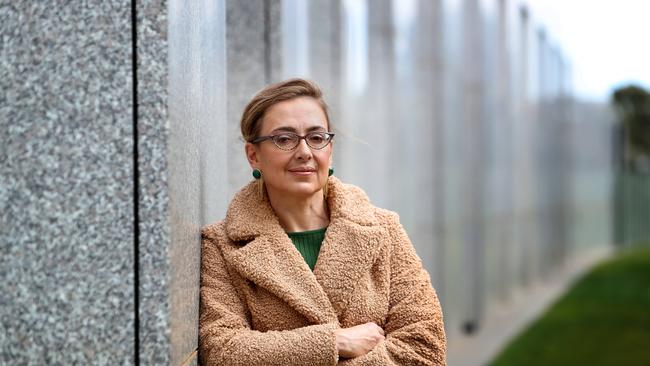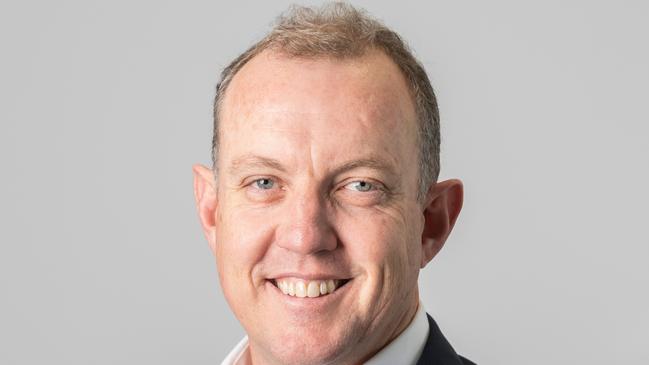Health fund premium price rises for Australians and how to avoid them
Three of the biggest health funds will raise their premiums by up to 8 per cent. Here’s what it will cost you and how you can avoid the sting to your household budget.
Health
Don't miss out on the headlines from Health. Followed categories will be added to My News.
Exclusive: Major health funds will raise their Gold health premiums by up to a staggering 8 per cent in coming months, more than twice the “average” rise announced by the government.
It will push the cost of top cover in some states to over $8,600 a year for families before the government rebate is applied.
The boss of Australia’s health fund lobby group admits this level of insurance is becoming unaffordable and she has revealed funds are discussing major reforms with the government.
People with this type of cover are no longer buying insurance, they are essentially paying the full cost of their treatment through the product, Private Healthcare Australia CEO Dr Rachel David said.
“It is effectively a pool of high claimers that can’t be subsidised. It’s a very expensive savings account,” Dr David said.
New data shows poeple are ditching their Gold cover and shifting to Silver and Bronze. Department of Health figures show Silver products overtook Gold as the most popular type of cover in the last three years. Just 35 per cent of people have Gold cover in March 2023 down from 38.7 per cent while 37.2 per cent have Silver and 19 per cent Bronze cover.

Some families earning less than a combined income of $280,000 are eligible for a government tax rebate worth between 8-2per cent 24.6 per cent which lowers their costs.
However, News Corp can reveal if you pay full premiums and even if you receive a tax rebate and need a hernia operation or cataract surgery it would be cheaper to self fund.
The government’s Medical Cost Finder website reveals a hernia operation costs $7,100, a normal birth costs $8,700, and cataract surgery costs $4,400.
A former boss of the lobby group, Russell Schneider said the solution is to scrap cheaper Bronze, Silver and Basic products and spread the risk better by requiring health funds to provide top cover to all their members.
He estimates this could halve the cost of Gold products and you could compensate people on cheaper products by tweaking government rebates or tax subsidies.

The problem has arisen because people are self selecting their own health risk rating when they buy insurance.
Younger people who think they are unlikely to go to hospital pay for the cheaper Bronze products.
Older Australians who won’t be having babies opt for Silver Plus but this means most people in this product are older, more likely to be having hip or knee operations and this means some Silver policies actually cost more than Gold.
“The moment you start allowing people to decide what risk they’re going to carry (under the current tiered health insurance policy) the more you drive up the price for those who believe that they should be fully covered,” Mr Schneider said.
HCF and nib and Bupa will raise their premiums on October 1. Medibank has already raised its premiums in January and again in June.
Families already battling rising grocery and mortgage prices might be able to avoid the looming premium rises by paying for an entire year’s cover upfront before the premium rises take effect.
In this way you can get a year’s cover at the existing lower premium rate.
Bupa allows customers to pay 12 months in advance, NIB 13 months and HCF 18 months in advance.

In addition nib provides its members with a 4 per cent discount if they pay via direct debit.
“If you have the cash available, and you are on one of those top tier levels of cover it is something you should consider doing. However, a lot of people won’t have that ability,” Dr David said.
“The best strategy for them is to go to the Ombudsman’s website (privatehealth.gov.au) and compare product,” she said.
Our analysis found massive price differences in prices between Gold products.
Medibank has the cheapest Gold cover of any of the big four health funds.
Some health fund members could save nearly $1,800 a year by switching funds.
Bupa Health Insurance Managing Director Chris Carroll said “Delaying our premiums for six months until October was the right thing to do, easing some pressures on household budgets while saving our members $154 million.”
The fund has also recently announced it would pay a further $320 million cash back to its members towards the end of the year to recompense them for profits the fund made because of Covid affecting claims rates.
Australian Medical Association president Professor Steve Robson said “funds appear to have swung wildly from cash-back handouts to now asking for a small fortune, at a time when we’re all feeling the pinch”.“It’s clear we desperately need urgent reform to make it sustainable for patients and the sector - it’s why we’re calling for a private health system authority to be established,” he said.
More Coverage
Originally published as Health fund premium price rises for Australians and how to avoid them





